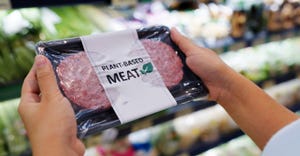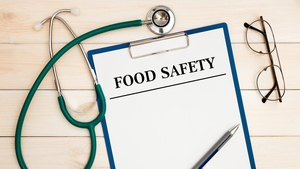World food prices declined sharply in March, driven mostly by demand-side contractions linked to the effects of the COVID-19 pandemic and the drop in global oil prices due mostly to expectations of economic slowdown as governments roll out restrictions designed to respond to the health crisis, according to the latest data from the UN’s Food Agriculture Organization (FAO).

The FAO Food Price Index, which tracks monthly changes in the international prices of commonly traded food commodities, averaged 172.2 points in March, down 4.3% from February, but still up 2.75 higher than the same time last year. Declines were most pronounced for sugar and vegetable oils.
“The price drops are largely driven by demand factors, not supply, and the demand factors are influenced by ever-more deteriorating economic prospects,” said FAO Senior Economist Abdolreza Abbassian.
The Sugar Price Index averaged 169.6 points in March, down 40.1 points (19.1%) from February, marking the most significant dip in international sugar prices in years. Causes include lower demand from out-of-home consumption linked to the confinement measures imposed by many countries, and lower demand from ethanol producers due to the steep fall in crude oil prices.
The Vegetable Oil Price Index averaged 139.1 points in March, down 19 points (or 12%) from February, marking the lowest level since October 2019. The continued decline stemmed from falling palm oil prices linked to the plunge in crude mineral oil prices and rising uncertainties over the pandemic’s impact on vegetable oil markets worldwide. Soy and rapeseed oil prices followed the trend.
“Oil prices have fallen by more than half during the past month, which catalyzes a large downward impact on biofuels, which are an important source of demand in the markets for sugar and vegetable oils,” said Peter Thoenes, FAO analyst.
The FAO Dairy Price Index averaged 203.5 points in March, down 6.4 points (3%) from February, mostly due to declining quotations and global import demand for skim and whole milk powders, due largely to disruptions in the dairy supply chains because of the containment measures aimed at controlling the spread of COVID-19. Butter and cheese price quotations also eased in March, albeit moderately, due to weak import demand for spot supplies, notwithstanding seasonally limited export availabilities in Oceania.
The Cereal Price Index averaged 164.6 points in March, down 3.2 points (1.9%) from February. International wheat prices declined, as the effects of large global supplies and broadly favorable crop prospects outweighed those of increased import demand from North Africa and some small export limitations imposed by the Russian Federation. Maize prices also declined due to both large supplies and much weaker demand from the biofuel sector. International rice prices, by contrast, rose for the third consecutive month, with Indica quotations buoyed by stockpiling spurred by concerns over the pandemic and reports that Vietnam might introduce export bans - which the government has since downplayed.
FAO Director-General QU Dongyu told national leaders at the March G20 summit “to make sure that agricultural trade continues to play its important role in contributing to global food security” and to avoid policies that stymie trade flows that underpin food-supply systems. FAO is closely monitoring prices and logistical issue for food commodities with an eye to alerting countries of emerging problems that could exacerbate potential disruptions during the pandemic.
The Meat Price Index averaged 176 points in March, down 1 point (0.62%) from February, led by drops in international quotations for ovine and bovine meats, for which export availabilities are large and trade capacity dampened by logistic bottlenecks. Pig meat quotations rose amid surging global demand and as processing facilities were hampered by the restrictions on the movement of workers. Poultry meat quotations remained largely stable, as supplies were adequate to meet current import demand, although exports began to show signs of slowing.
About the Author(s)
You May Also Like






